Podcast #2: Sebastian Grimm about an engineer’s perspective on synchrotron radiation
What is synchrotron radiation? How can it be tailored and utilized to understand, how microscopic interactions cause mesoscopic phenomena? What are challenges and chances for engineers that enter the multidisciplinary world of materials science – a field primarily populated by chemists and physicists?
In our second podcast episode, Sebastian Grimm introduces us not only to the world of particle accelerators but also to the difficulties he had to face, when being the only engineer in the room among physicists and chemists.
Having a mechanical engineering background, primarily solving flow and heat transfer problems by computational methods using high performance computers in the past, Sebastian takes us on a journey of an engineer doing research in materials science. He currently works at the Institute of Thermodynamics at the University of Duisburg-Essen on the gas-phase kinetics of chemical compounds used to obtain functional materials. These functional materials can be found in almost every aspect of modern life, ranging from smartphones to emerging fields like energy conversion and storage. For the latter application, improving these materials is necessary to achieve the aims defined for the energy transition in Germany, approaching net-zero by 2050. Here, chemical processes influence the efficiency and properties of the synthesis of those functional materials and revealing the gas-phase mechanisms is a central issue.
When starting his PhD journey in July 2018, Sebastian was good in turning numbers but a novice in the lab environment, who never saw a turbomolecular pump before in his academic career. However, in the course of his PhD, he became a well-trained lab scientist working in advanced large-scale facilities, such as the electron accelerator and storage ring, Swiss Light Source (SLS), at the Paul Scherrer Institute (PSI) in Switzerland. On these instruments, he and his research group managed to establish a methodology to obtain comprehensive results by unravelling yet unknown gas-phase decomposition pathways. These insights contribute to improving the synthesis process of functional materials, which ultimately leads to lower energy and material consumption.
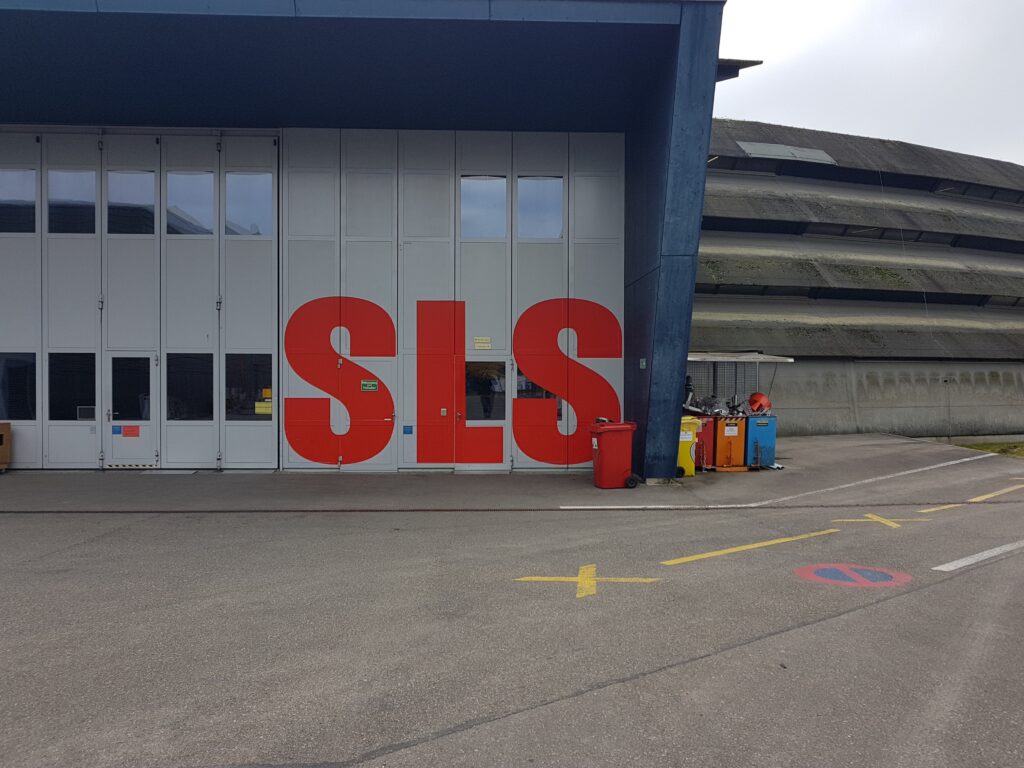
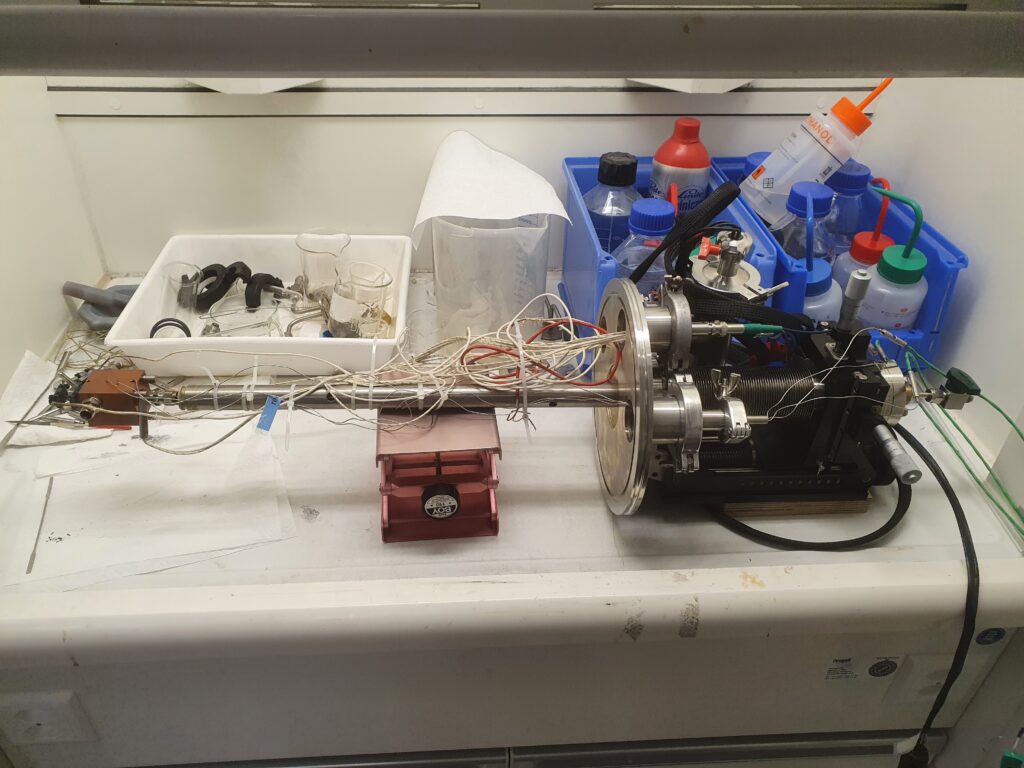
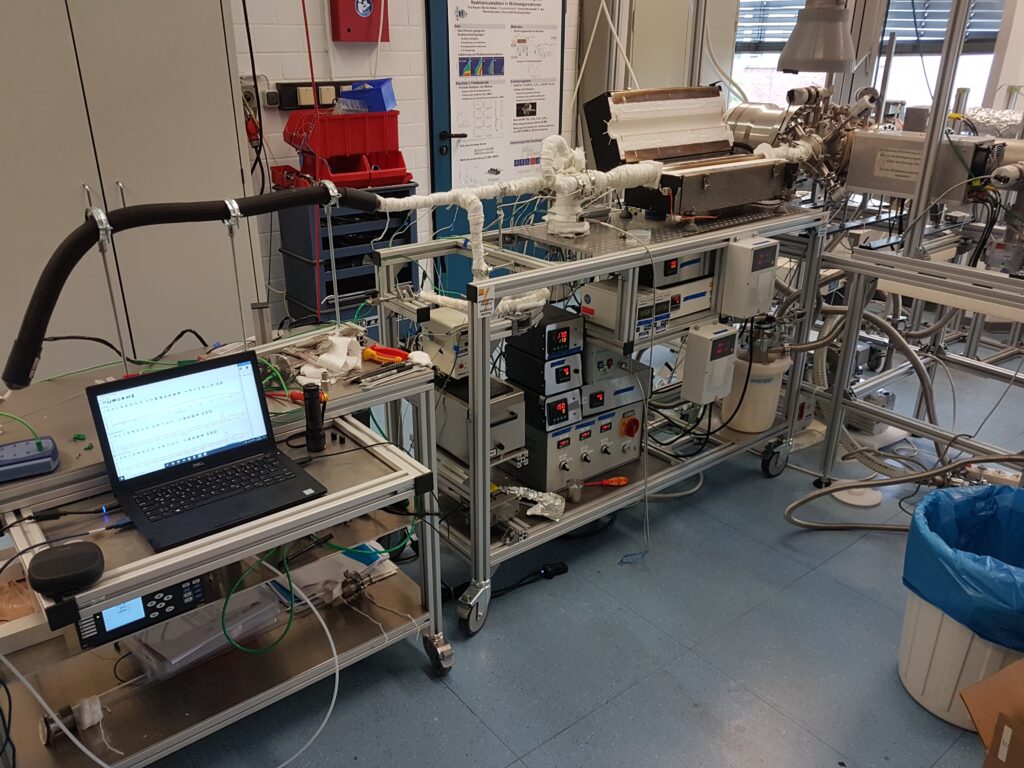
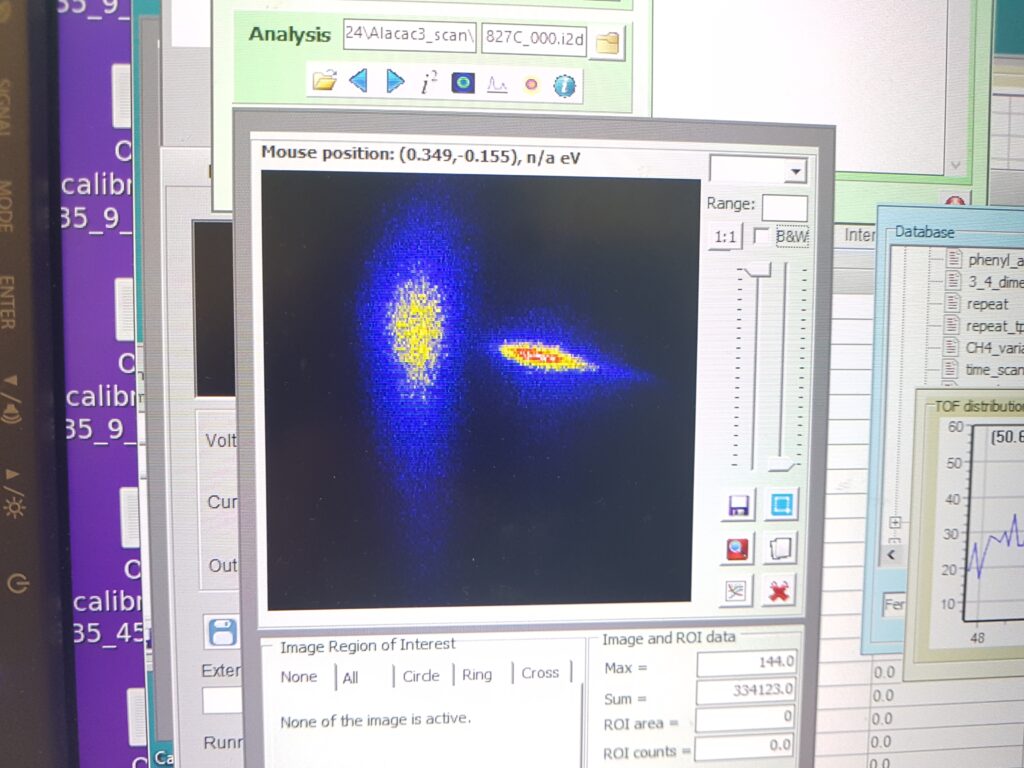
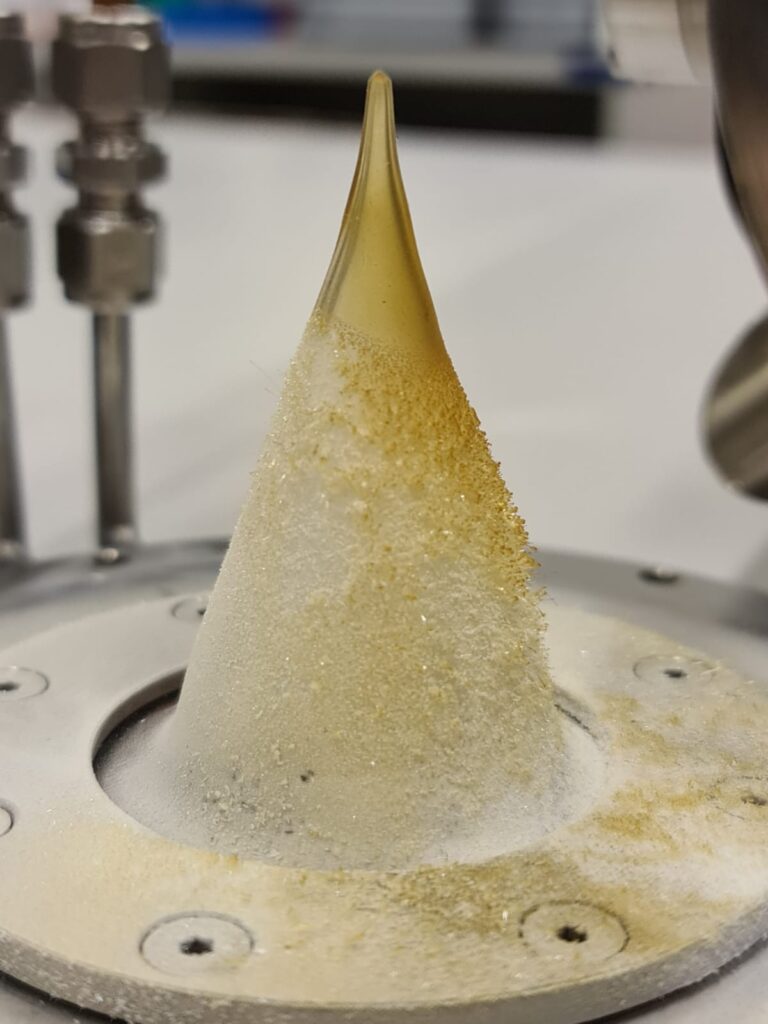
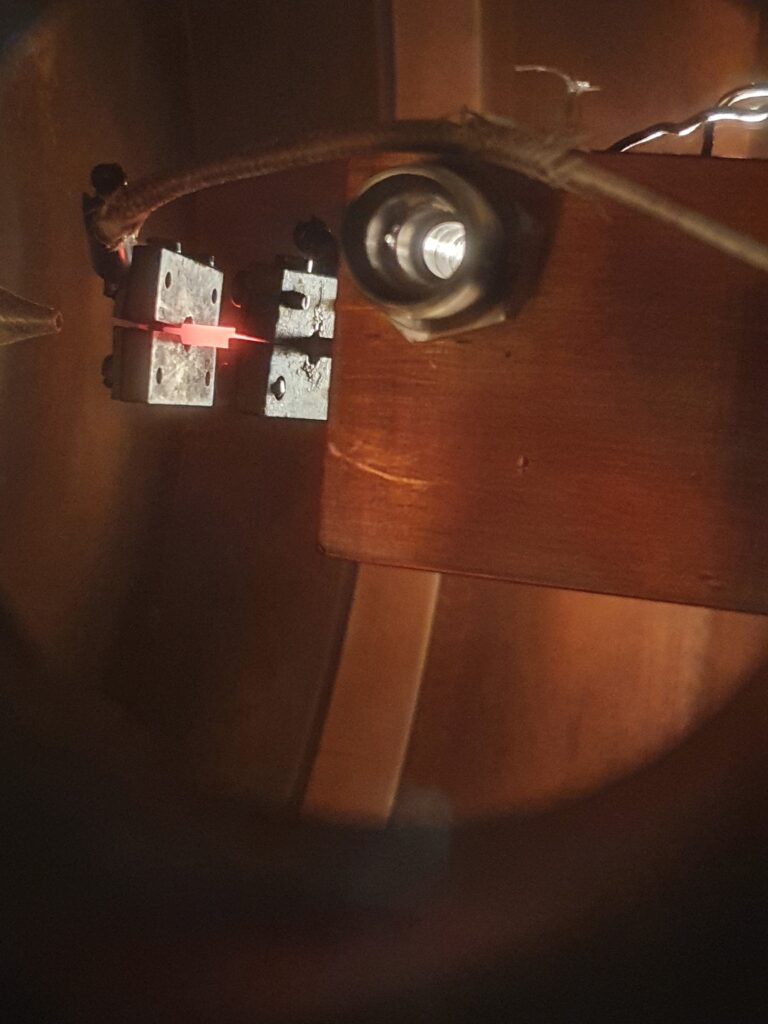
Useful links:
Swiss Light Source Synchrotron
CENIDE News Entry on Highlighted Publication
Recent Publications:
Al(acac)3: https://doi.org/10.1039/D1CP00720C
Zr(acac)4: https://doi.org/10.1557/s43578-022-00566-6









